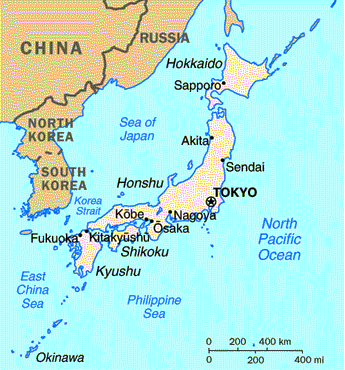
BREDL's Lou Zeller was in Okinawa as a
participant at the NGO
Center which was organized by the Okinawa
Environmental Network with the cooperation of
the Japanese Foreign Ministry. |
2000 G-8 Summit
|

BREDL's Lou Zeller was in Okinawa as a
participant at the NGO
Center which was organized by the Okinawa
Environmental Network with the cooperation of
the Japanese Foreign Ministry. |
|
Russian and American NGOs Blast G-8 Secrecy. Plutonium Plans are a Danger to All Nations. PRESS
ADVISORY - JOINT PRESS
CONFERENCE BY RUSSIAN AND AMERICAN NGOs
AT G-8 SUMMIT - 12 Noon , July 22,
2000 NGO Center
|
|
July 3, 2000 - Letter
to Heads of State of Nations of the G-8 From
Non-governmental Organizations Opposing Plutonium
Fuel
|
|
Reports from the G-8 Summit
|
|
Self-reliance of Local Districts and Systems of Sustainable Development in the Age of Globalization Lou Zeller, July 18, 2000 Naha City, Okinawa "By the end of the 20th Century rapid technological progress, especially in transportation and communication, facilitated world-wide multilateral cultural exchange. In the 21st Century this process has taken the form of cultural globalization. In this context we as global citizens must take up the responsibility to set the rules of globalization." -Agenda of The People’s Summit in Okinawa, July 18, 2000 Today the People’s Summit in Okinawa set forth a statement of principles and promised to take their message to top levels of the Japanese government. TOES/Japan, The Other Economic Summit, brought together experts on social empowerment, international trade, information technology, and self-reliance for a one-day symposium. They timed the meeting to precede the G-8 Summit.
Dr.
Takashi Iwami, representing TOES/Japan,
summarized the statement from the group
to the Foreign Minister of Japan to be
delivered on July 21 during the Group of
Eight nations Summit. Dr. Iwami advocated
self-determination for all people and
said, "The decision not only belongs
to the G-8, but to grassroots people
participating north and south, east and
west to discuss and decide the future of
the world." Tatsuaki Oshiro, businessman and Japanese Representative of the Blue Ridge Environmental Defense League, advocated a massive, rapid switch from fossil-fuel to clean energy. Mr. Oshiro alerted the attendees to the human consequences of global warming posed by imminent threat of an 18 foot rise in ocean levels which would wipe out coastal cities around the world including his home in Okinawa. John Papworth, Episcopalian minister and editor of the international journal Fourth World Review warned the assembly of a world-wide crisis and sounded a call for radical change. Mr. Papworth said, "It is a crisis not only of militarism and greed-dominated economics, it is a crisis of massive environmental hooliganism, of a prodigious waste of finite resources, of the inequality of human social structure, and of human culture and morality. In short, it is a crisis of human existence." He drew upon the wisdom of Gandhi who said that we cannot have morality without community. Papworth said, "If we want to do justice to this beautiful plant, let us work with our neighbors to create a world which mirrors the natural world. We can do it with people power. I am not seeking here to give you a blueprint, rather am I urging you to create your own blueprint for your own empowered community with your neighbors whilst there is still time." The
symposium’s comprehensive agenda supported
the strict implementation of the resolutions of
the 1997 Kyoto Conference of Climate Change which
called for reductions in greenhouse gases (CO2)
and other pollutants. The symposium statements
supported other anti-pollution measures including
a carbon-energy tax and renewable energy
substitutes for fossil-fuel.
|
From Lou:
Tats Oshiro took me to a meeting tonight
of a coalition of environmental and human
rights groups in Okinawa. The room
was filled with hundreds
of supporters of the Citizens Peace
Coalition. They had speakers,
food, drink, and musical
entertainment. A lot of groups
working on environmental issues from
yesterdays symposium were there,
too. Okinawa Environmental Network
was there (they are the local
non-governmental organization organizing
the NGO Center this weekend). |
|
PLUTONIUM
DISPOSAL REMAINS STICKY ISSUE - The G8
nations failed to finalize the
financial assistance agreement for plutonium
fuel which they had hoped to reach in
Okinawa. Rumors of a done-deal had
circulated Washington for weeks. The
communique issued today postponed until next year
an arrangement to finance $2 billion for new
plutonium fuel facilities. In their
Communique Okinawa 2000 issued at the close of
their Summit in Okinawa, they stated:
"Our goal for the next Summit is to develop
an international financing plan for plutonium
management and disposition based on a detailed
project plan, and a multilateral framework to
coordinate this cooperation. We will expand
our cooperation to other interested countries in
order to gain the widest possible support
international support, and will explore the
potential for both public and private
funding." (photo: Lou Zeller, Vladimir Mikheev, and Tatsuaki Oshiro (not shown) deliver joint appeal on plutonium at the NGO press conference in Okinawa, Sunday, July 23, 2000) (photo: Tatsuaki Oshiro, Japanese Representative of BREDL, participating in the NGO Joint Declaration committee's final meeting. Mr. Oshiro is a native of Okinawa.) |